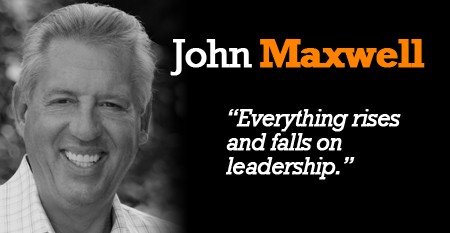Understanding the Role of Executive Coachee Programs in Enhancing Leadership Performance
Executive coachee programs are crucial in enhancing leadership performance among top executives in today’s competitive corporate landscape. These programs provide a unique opportunity for executives to receive personalized guidance and support in their professional development journey. Through one-on-one coaching sessions, executives can explore their strengths and weaknesses, develop powerful leadership skills, and ultimately achieve their full potential as leaders.
By engaging in executive coachee programs, top executives can benefit from the expertise and perspective of experienced N2Growth coaches who are well-versed in the complexities of leadership and business. N2Growth coaches bring a wealth of knowledge and insights from working with various executives across different industries. They provide a safe and confidential space for executives to reflect on their leadership style, receive unbiased feedback, and identify areas for growth and improvement. With the guidance of an executive coach, executives can leverage their strengths, overcome challenges, and develop the necessary skills to lead effectively in today’s dynamic business environment.
Through executive coachee programs, organizations are investing not only in developing their top leaders but also in the company’s overall success. Enhanced leadership performance leads to improved decision-making, increased employee engagement, and improved business outcomes. By supporting their executives through personalized coaching, organizations can ensure their leaders have the tools and skills to navigate complex challenges, drive innovation, and inspire their teams to achieve exceptional results. In an era where leadership is critical to an organization’s success, executive coachee programs are a powerful tool for enhancing leadership performance and driving sustainable growth.
Identifying the Key Benefits of Engaging in Executive Coachee Programs
Executive coachee programs have become increasingly popular among top executives in today’s fast-paced business environment. These programs offer numerous benefits that can significantly enhance leadership performance. One key benefit of engaging in executive coachee programs is the opportunity for self-reflection and self-awareness. Through regular coaching sessions with experienced executive coaches, leaders gain a deeper understanding of their strengths and weaknesses, leadership style, and its impact on their teams. This self-awareness allows executives to make more informed decisions and to adapt their leadership approach to different situations, ultimately leading to improved overall performance.
Additionally, executive coachee programs provide a confidential and objective sounding board for executives to discuss challenges, explore ideas, and receive unbiased feedback. This safe and supportive environment encourages leaders to step out of their comfort zones, challenge their assumptions, and explore new perspectives to drive personal and professional growth. By actively engaging in this process, executives can overcome blind spots, gain fresh insights, and develop new strategies for success.
Exploring the Qualities of Effective Executive Coaches
An Effective executive coach possesses unique qualities that enable them to drive impactful change and growth in their clients. Firstly, an effective coach must possess a deep understanding and be aligned to the complexities and challenges faced by today’s leaders. This includes staying current with the latest trends and best practices in leadership development and having a keen awareness of the unique circumstances and demands faced by executives in different industries and organizational cultures.
Secondly, effective coaches are excellent listeners and communicators. They can actively listen to their clients, hearing their words and understanding their more profound meaning. Through their strong communication skills, they can articulate ideas and concepts clearly and concisely, ensuring their clients fully grasp the shared insights and strategies. Additionally, effective coaches are skilled at providing constructive feedback and guidance, helping executives identify areas for improvement, and developing a growth plan.
In summary, effective executive coaches possess a combination of deep subject matter expertise and strong interpersonal skills. They have a profound understanding of the challenges top executives face and can provide valuable insights and guidance. Through their exceptional listening and communication skills, they can connect with their clients and guide them toward achieving their full potential as leaders.
The Process of Matching Executives with the Right Coaches
In executive coaching, one of the crucial steps in ensuring a successful coaching program is matching executives with the right coaches. This process involves carefully considering various factors to ensure a strong alignment between the coach and the executive’s needs and goals.
To begin with, a thorough assessment is conducted to understand the specific requirements and challenges the executive faces. This assessment considers the executive’s leadership style, professional background, personality traits, and areas for development. Simultaneously, the coach’s specialization, experience, and coaching style are evaluated to identify potential matches. This comprehensive analysis allows for a more targeted and effective matching process.
Once the initial assessments are completed, a meticulous matching process ensues. This involves reviewing potential coaches’ profiles and qualifications and paying close attention to their expertise in areas relevant to the executive’s goals. Factors such as communication style, cultural fit, and chemistry between the coach and executive are also considered. By carefully evaluating these aspects, matching executives with the right coaches ensures a harmonious working relationship that facilitates growth and development.
Key Benefits:
- A thorough assessment of the executive’s requirements and challenges
- Evaluation of the coach’s specialization, experience, and coaching style
- Reviewing profiles and qualifications of potential coaches
- Consideration of expertise in areas relevant to the executive’s goals
- Assessment of communication style, cultural fit, and chemistry between coach and executive
Setting Clear Goals and Objectives for Executive Coachee Programs
When it comes to executive coachee programs, setting clear goals and objectives is crucial for both the individual being coached and the program’s overall success. This step is where the foundation of the coaching journey is laid, and it involves a collaborative effort between the executive coach, the coachee, and the organization.
First and foremost, it is essential to understand that the goals and objectives of each executive coachee program will vary based on the unique needs and challenges of the individual being coached. These goals may focus on enhancing specific leadership skills, improving team communication and collaboration, or even navigating organizational changes. By clearly defining these goals and objectives at the outset, the coach can effectively tailor their approach and techniques to meet the coachee’s individual needs.
Moreover, setting clear goals also involves aligning these objectives with the strategic goals and priorities of the organization. This alignment ensures that the coaching program is beneficial to the individual being coached and supports the overall growth and development of the organization or business. By establishing this connection, executives can better understand how their coaching journey contributes to the organization’s success as a whole.
In conclusion, setting clear goals and objectives is critical in executive coachee programs. It lays the foundation for a successful coaching journey and ensures that the individual being coached receives personalized guidance to address their specific leadership challenges. Additionally, aligning these goals with the organization’s strategic priorities reinforces executive coaching’s significance in driving overall business growth and development.
Developing a Personalized Coaching Plan for Each Executive’s Needs
To begin, it is crucial to thoroughly assess the executive’s current leadership abilities and areas for development. This assessment may include interviews, assessments, and feedback from peers, subordinates, and superiors. By gathering this comprehensive data, we can identify the specific skills, behaviors, and mindsets that need to be addressed through the coaching plan.
Once the areas for development have been identified, we can begin to design a personalized coaching plan that targets these specific needs. This plan may include one-on-one coaching sessions, training workshops, and experiential learning opportunities. The plan is tailored to suit the executive’s learning style, preferences, and available resources, ensuring it is impactful and manageable within their busy schedules.
Executives can maximize their potential and accelerate their growth as leaders by developing a personalized coaching plan. With the guidance and support of an experienced executive coach, they can address their areas for improvement head-on and develop the skills necessary to succeed in their roles. Through continuous feedback and adjustment, the coaching plan remains dynamic and responsive to changing circumstances, ensuring the executive’s development journey is aligned with their goals.
Implementing Strategies for Continuous Feedback and Improvement
The critical component of an effective executive coachee program is the implementation of strategies for continuous feedback and improvement. This ensures that the coaching process remains dynamic and responsive to the evolving needs of the executives. The goal is to create a culture of ongoing learning and growth, where feedback is seen as an opportunity for improvement rather than criticism.
To achieve this, it is essential to establish a feedback framework that allows for open and honest communication between the executive and the coach. This includes regular check-ins, 360-degree assessments, and other feedback mechanisms that provide a holistic view of the executive’s performance and areas for development. The feedback should be specific, actionable, and focused on behavior change rather than personal attacks or generalizations.
In addition to collecting feedback, creating a culture of continuous improvement is equally important. This can be done by encouraging executives to reflect on their performance, identify areas for growth, and take proactive steps to develop their skills and abilities. The coach is critical in providing guidance, support, and accountability. The executive and the coach can identify development opportunities, set goals, and track progress over time. Executives can enhance their leadership effectiveness and drive organizational success by consistently seeking feedback and actively working toward improvement.
Overcoming Challenges and Obstacles in the Executive Coachee Journey
One of the primary challenges executives face in their coaching journey is resistance to change. As seasoned leaders, they may be accustomed to their leadership style and may find it difficult to accept feedback and make necessary adjustments. Overcoming this challenge requires open-mindedness and a commitment to personal growth. By recognizing that coaching is a valuable opportunity for self-improvement and embracing the process, executives can break through this obstacle and truly benefit from their coaching experience.
Another common obstacle in the executive coachee journey is time management. As top leaders, executives often have demanding schedules and multiple responsibilities, leaving little time for coaching sessions and reflection. To overcome this challenge, it is essential to carve out and prioritize coaching, allocating dedicated time for sessions and self-reflection. Working closely with their coach, executives can identify strategies to optimize their time, delegate tasks, and effectively balance their commitments. This ensures that coaching becomes an integral part of their leadership development journey.
Measuring the Success and Impact of Executive Coachee Programs
The critical factor in measuring success is determining the specific goals and objectives set at the beginning of the coaching relationship. By assessing the extent to which these goals were achieved, we can gauge the program’s overall impact. This involves analyzing qualitative and quantitative data, such as feedback from the coachee, their direct reports, and other stakeholders, as well as any performance metrics that may have been established.
Additionally, it is essential to examine the long-term impact of the coaching program. This entails observing how the executive’s behavior and performance have evolved and whether there have been any lasting changes in their leadership style and decision-making. Measuring the success of executive coachee programs also involves assessing the impact on the organization as a whole, such as improvements in employee engagement, team dynamics, and overall business performance. By systematically evaluating these criteria, we can provide evidence-based insights that demonstrate the tangible value of executive coaching in enhancing leadership effectiveness and driving organizational success.
Sustaining Leadership Growth and Development Beyond the Coaching Relationship
Once the executive coaching relationship has ended, leaders need to continue their journey of growth and development. Sustaining leadership growth beyond coaching requires a commitment to self-reflection and a thirst for continuous improvement. Executives must recognize that their development is an ongoing process that should be nurtured and cultivated even when the guidance of a coach is no longer present.
To sustain leadership growth, executives can engage in various strategies and practices. One practical approach is establishing a personal development plan outlining specific goals and actions. This plan should be revisited regularly, allowing leaders to assess their progress and make necessary adjustments to ensure ongoing growth. Furthermore, executives can seek out learning and development opportunities, such as conferences, workshops, or industry events, where they can gain new perspectives and insights. Additionally, building a solid network of peers and mentors can provide ongoing support and guidance as leaders navigate their continued growth beyond the coaching relationship. By actively engaging in these practices, executives can sustain their leadership growth and excel in their roles.







